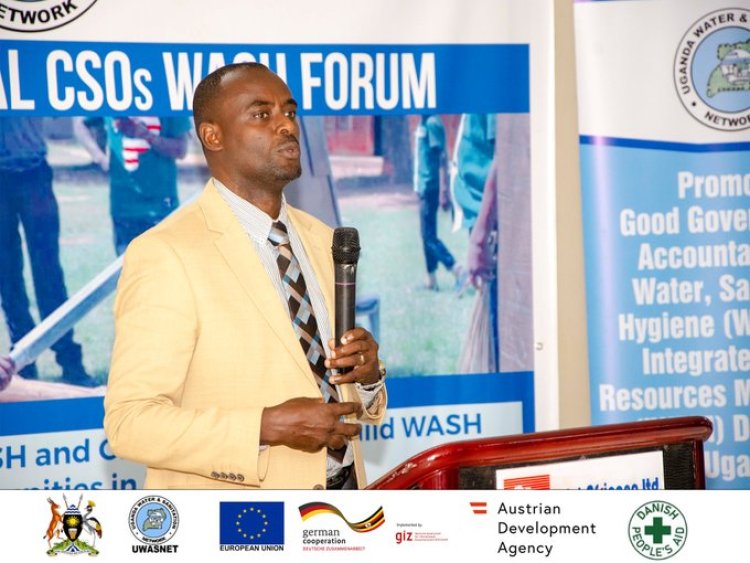Let us prevent rather than cure
The implications for health are severe: spread of infections in the very place in which patients are seeking care.

UGANDA - The implications for health are severe: spread of infections in the very place in which patients are seeking care. The implications for dignity are also profound; for example, women who are in labour may need to walk outside the facility to relieve themselves. The cost implications have not yet been quantified but are likely to be significant.
It is from the above background that Dr. Nabaasa Herbert, Commissioner-Department of Environment Health says there is need to advocate for prevention other than cure and should not wait for the water, sanitation and hygiene solutions, and climate change to get worse before they can do something about it. He made these remarks during the 12th Annual WASH CSO Forum under the theme “the nexus between WASH and Climate Change: Building WASH resilient communities in Uganda.”
While delivering his closing remarks, the Commissioner also urged the UWASNET committee and other CSOs, as well as the government officials who were in attendance to see to it that what was discussed during the forum be put in practice.
The annual Uganda Water and Sanitation Network (UWASNET) CSO forum brought together WASH actors from all over the country to share experiences and provide opportunity for learning. UWASNET organized the 12th Annual WASH CSO Forum under the theme “the nexus between WASH and Climate Change: Building WASH resilient communities in Uganda”. It seeks to bring together different WASH stakeholders to share experiences, learnings and deliberate on existing gaps in the sector that may curtail the realization of the Third National Development Plan (NDP III) performance targets and other national commitments.
In order to ensure operationalization of NDP III, all government plans are now aligned to the NDP III and deliberate efforts have been undertaken to link these plans to the Programme Based Budgeting System (PBBS). Not only are development partners required to align their frameworks to meet the aspirations of NDP III but also their planning processes must be reformed to take the programme-based approach for effective and efficient delivery of common results while implementing NDP III. Meanwhile, CSOs in the WASH sector continue to support Local Governments (LGs) that are required to not only report to the relevant ministries (Water, Health and Education) periodically but also provide information on the utilization of funds to the centre for the preceding quarter to support the work-plans and justification for release of funds in line with the Programme Based System which urgently needs to be strengthened to relate to the sector Management Information Systems (MIS), Output and Outcome indicators as embedded in NDP III.
It's thus critical that coordination, monitoring and reporting of NDP III implementation is strengthened across the continuum of different key stakeholders with emphasis on the results framework to adequately guide the data collection process, analysis and reporting to be able to assess implementation progress towards the realization of the NDPIII development goal and objectives. And this will give rise to evidence-based development planning, implementation/operational planning, resource mobilisation, budgeting, and budget execution as well as effective monitoring, evaluation and reporting which are all crucial tenets of effective policy implementation.

































































































